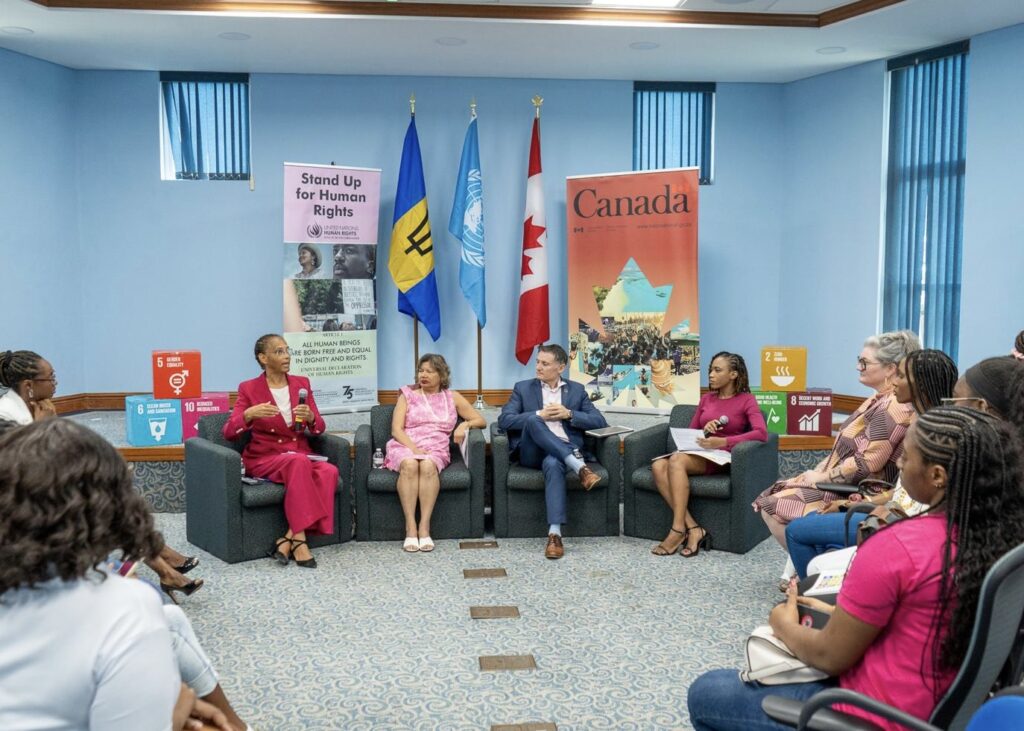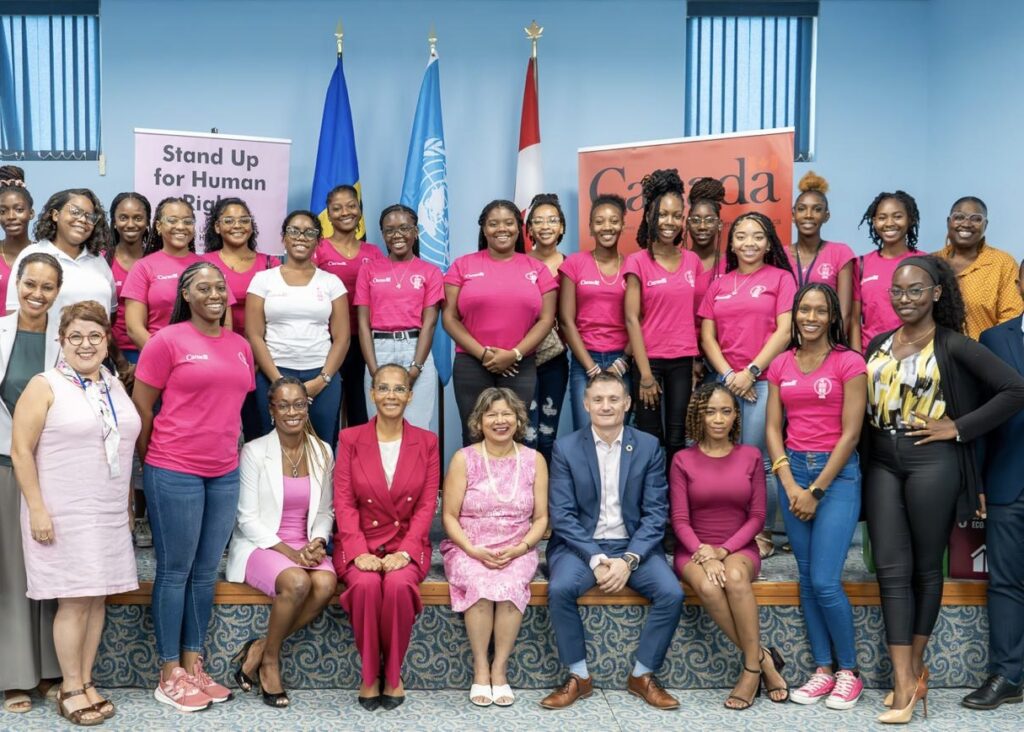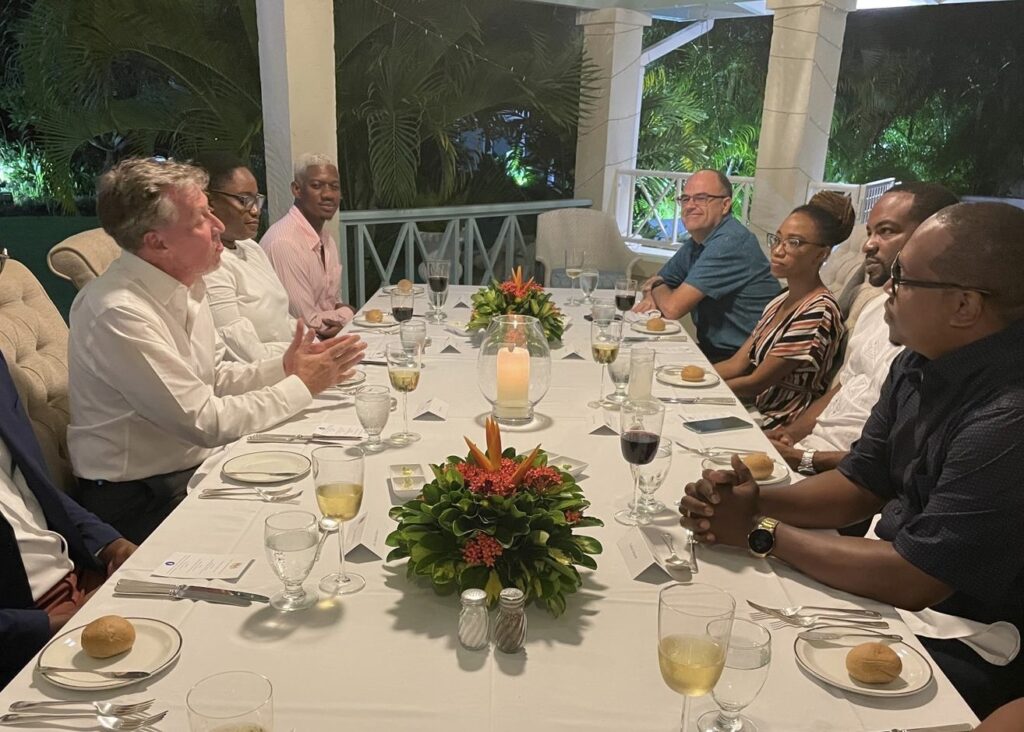“What drives me is knowing the change I want to achieve—and I know that I can do it.”
With these words, Ronelle reveals the unwavering determination behind her mission for a more equal world. Since the publication of “A Paradise for All Caribbean Women,” her journey has evolved through new initiatives, collaborations, and remarkable progress, even in the face of challenges.
This article is split into two parts and here is the first half. Let’s dive into Ronelle’s inspiring journey!
(If you haven’t read the original article, “A Paradise for All Caribbean Women,” you can catch up here [LINK])
Hello! My name is Karen, and I am the interviewer.
Thank you so much for joining us again, Ronelle! I’m excited to hear about the updates and reflections you have on pursuing your dream.
Empowering Change: New Paths and Initiatives
As you mentioned in the book, #LifeInLeggings started as a cyberfeminist movement and grew into a grassroots organization. Are there any new initiatives or projects you are currently working on?
Since then, we launched the “Pink Parliament,” an initiative I founded and where I actively serve as the project manager. The goal is to increase women’s participation in politics. I realized that very few women held decision-making roles in spaces focused on policy changes, and there was a lack of political will to address gender-based violence, limiting the opportunity to tackle its root causes.
Can you tell us about how the Pink Parliament Initiative empowers young women and what they can gain from it?
This initiative is created as a space for girls to build confidence, recognize their power to create change directly, and advocate for the issues they care about—without waiting for others to act.
We believe every young woman’s voice is invaluable since they often bring unique perspectives and firsthand insights that make them the best advocates for women’s issues. By empowering them, the Pink Parliament helps young women develop solutions that can impact not only their communities but also inspire change on a regional or national scale.
Additionally, the initiative connects these young women with established female politicians, fostering mentorship and collaboration. This bridge builds a lasting legacy, ensuring that today’s elected women leaders are the beginning of a continuous stream of future changemakers.

Have you observed any results or changes from the program since the start?
So far, over 100 girls have participated in small, impactful cohorts, where they receive one-on-one mentorship and develop skills for meaningful change.
The results have been inspiring: some of our early participants have taken on leadership roles in national committees, the National Youth Council, and various nonprofits. They’re now actively influencing policy and driving change in their communities with the skills they developed in this initiative.

That’s a huge progress, right? It’s truly inspiring to see how these young women are not only gaining skills but actively driving change in their communities.
Absolutely! It is a significant step toward changing the narrative around women’s leadership, but our work is not just about empowering women—it’s about transforming the broader community.
Expanding Perspectives: Incorporating Man into the Initiative
In line with this broader vision, in November 2021, we launched another initiative called “Redefining Masculinity” to transform how men and boys in the Caribbean are socialized. The aim is to reduce societal violence, including gender-based violence, by addressing how traditional ideas of masculinity contribute to aggressive responses and the inability to manage conflict healthily. The initiative arose from recognizing that many men and boys struggle with interpersonal skills and lack space to discuss their challenges and process emotions.
Could you tell me more about the Redefining Masculinity initiative and its impact??
The initiative provides tools and communities for men to be able to build emotional regulation and social skills, empowering them to respond to challenges with empathy instead of dominance. Key activities include bystander intervention training to help men recognize and step in during potentially violent situations. Educational sessions run at all levels—from primary schools to universities and community settings—to help men develop these skills early on.
One program part of the initiative is the PADRA program, which focuses on fathers and soon-to-be fathers, guiding them in co-parenting, preventing domestic violence, and fostering positive family dynamics. This has been vital in dealing with issues such as domestic violence and, in some cases, familial sexual violence, as these forms of abuse are often perpetrated by men in the home.
That sounds like an incredible way to incorporate men as well. What has been the response from local communities?
A major achievement has been training local men to become role models and advocates in their communities. By equipping them to address issues and intervene when necessary, we’re creating a ripple effect of support.
Additionally, the British High Commission facilitated a crucial stakeholder meeting that brought together men’s and women’s organizations, policymakers, and academics. This gathering expanded the conversation on gender equality to include men’s active involvement, reinforcing the importance of programs like Redefining Masculinity in making a widespread impact.

Has this shift in mindset led to new partnerships or initiatives?
Yes, it sparked new collaborations, particularly focused on men’s roles in promoting gender equality. Though funding remains a challenge for a middle-income country like Barbados, we’re encouraged by the strong commitment from our partners.
Changing Societal Attitudes and Policy Shifts
You have been at the forefront of addressing gender-based violence in the Caribbean and driving impactful actions. Have you seen any shifts in societal attitudes toward this issue or policy changes in the Caribbean?
There’s been a definite shift in attitudes. Women are becoming more open about sharing their experiences with gender-based violence, especially on social media, which was rare before. They’re receiving support online, even if not always from close friends or family. The hashtag, #LifeInLeggings helped start this trend, and it has become part of the movement’s legacy.
In terms of policy, there are some changes but progress is slow, as Caribbean legislation can take a long time to pass. For instance, a law passed in 2017 had been drafted twenty years earlier. Currently, several new bills are in progress, including those addressing child sexual grooming, technology-facilitated violence like online harassment, and protections for children in schools. Mandatory reporting of suspected abuse is also being discussed, which would be a big step forward, increasing support and understanding that “gender-based violence is wrong.”
With all the progress you’re making, I’m sure there are challenges and resistance. How do you handle the difficulties that come with driving such significant shifts?
Of course, in reality, whenever there’s progress, there’s always a big pushback. Like other movements, mine has faced resistance, especially from groups who don’t like the progress or feel there’s too much focus on women’s issues. However, these voices aren’t close enough to stop us from moving forward. It’s like people screaming from outside a house—you just close the curtain and keep going.
To be continued in [LINK]…

